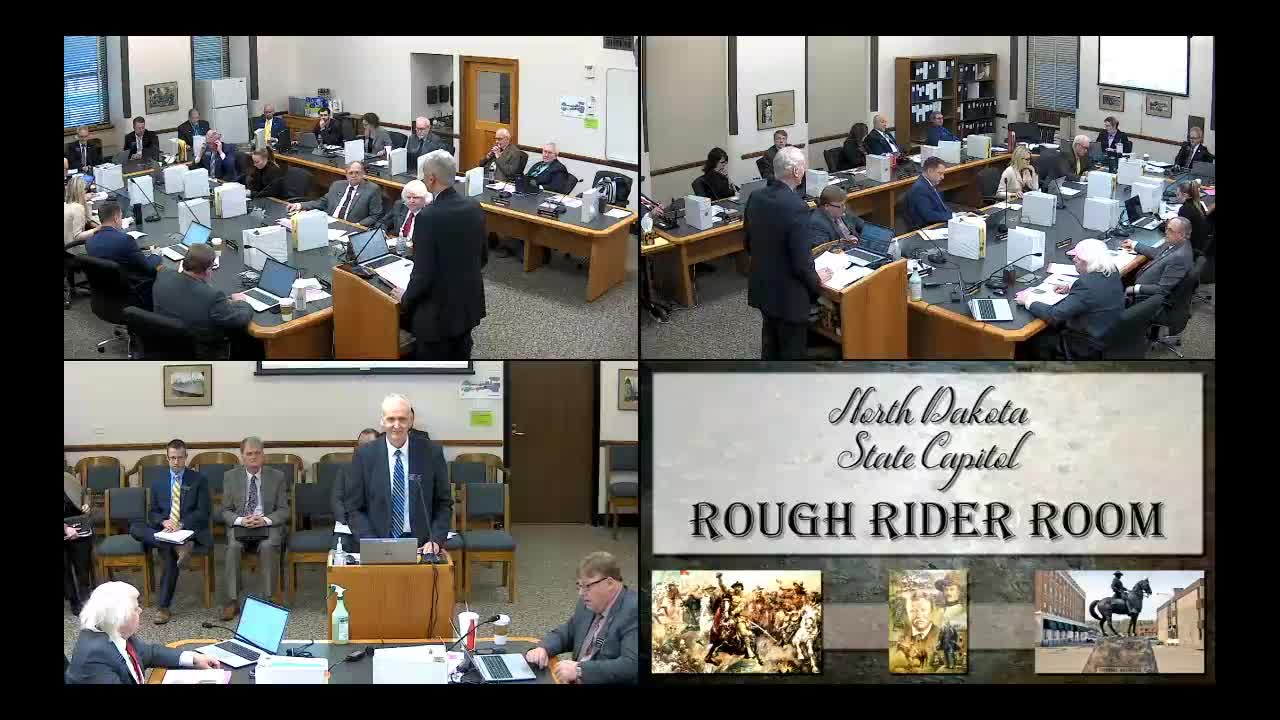Article not found
This article is no longer available. But don't worry—we've gathered other articles that discuss the same topic.
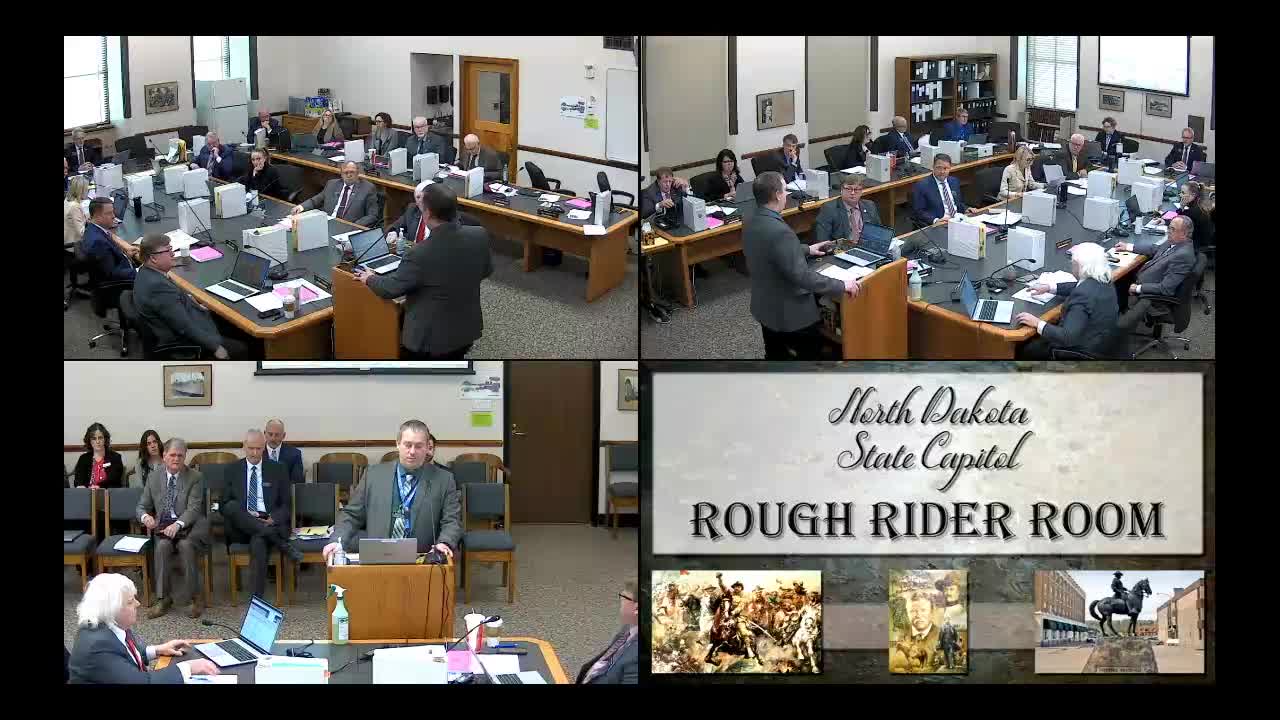
Committee adopts electronic voting pilot for committee records; fiscal staff explains fiscal impact report process
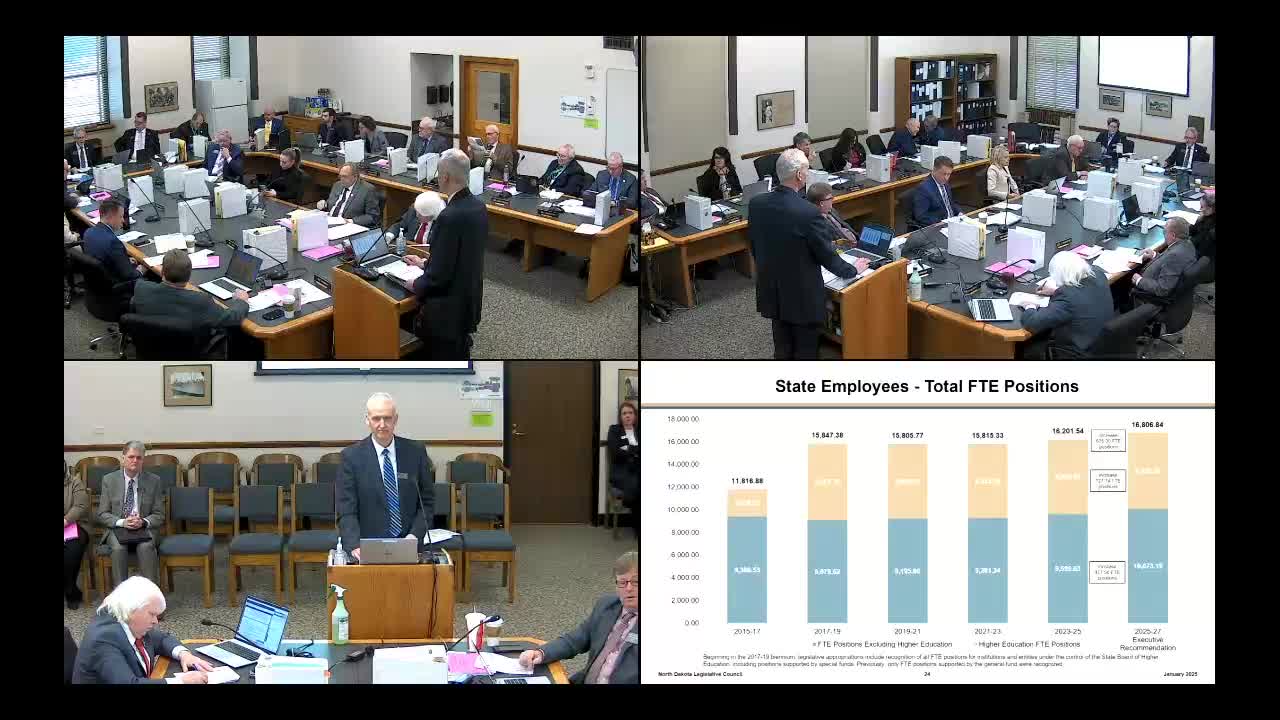
Appropriations committee warned inmate counts and corrections costs are rising
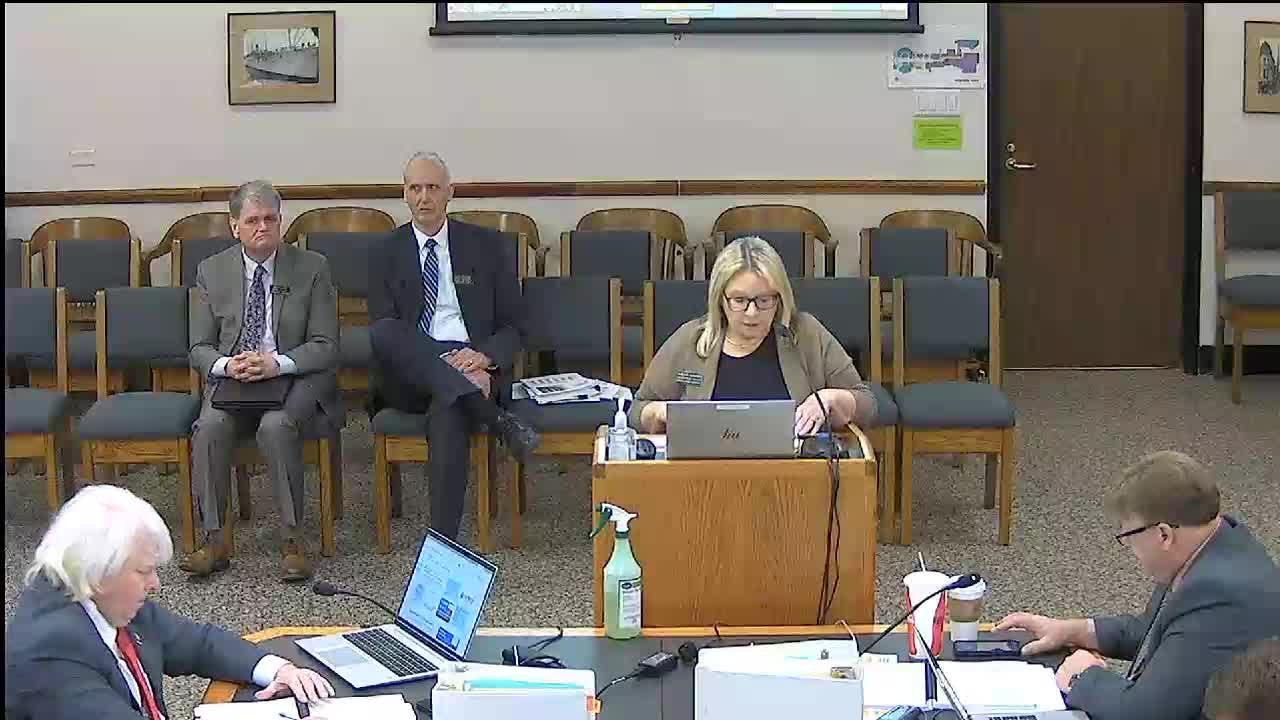
Committee briefed on K‑12 funding mechanics, Common Schools Trust Fund and Foundation Aid Stabilization Fund
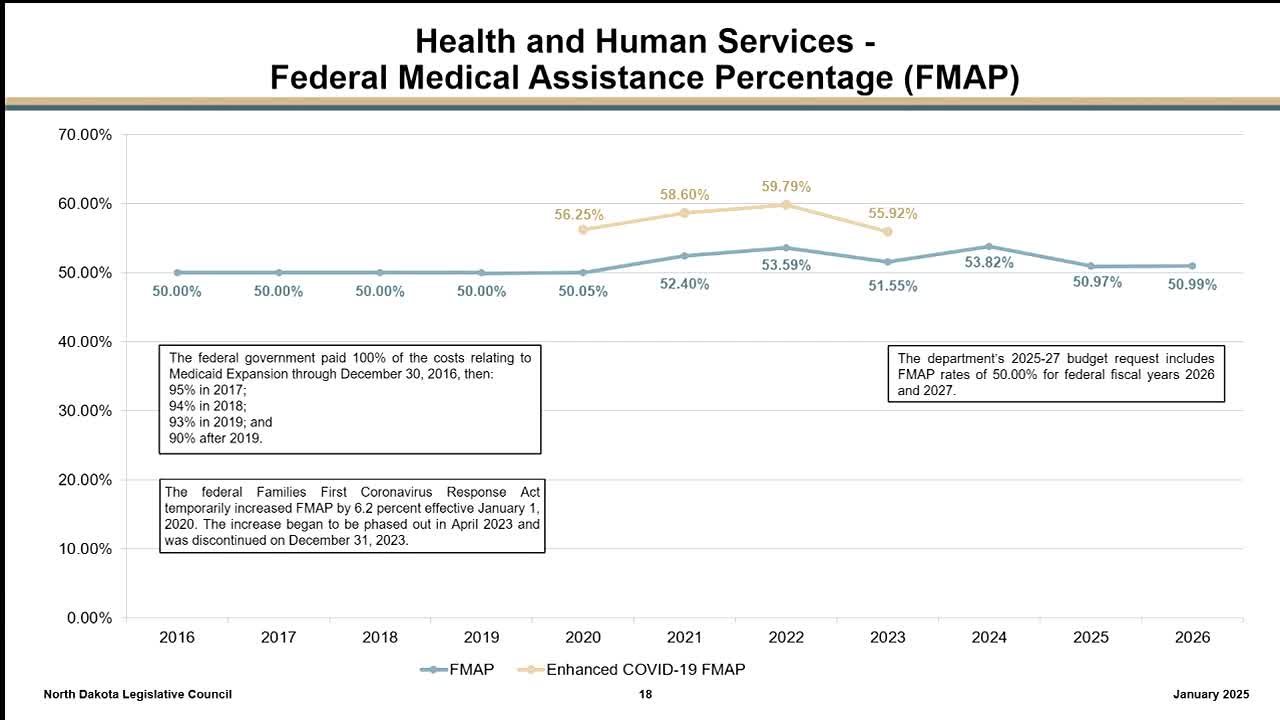
Appropriators briefed on Medicaid costs, FMAP changes and human services spending
